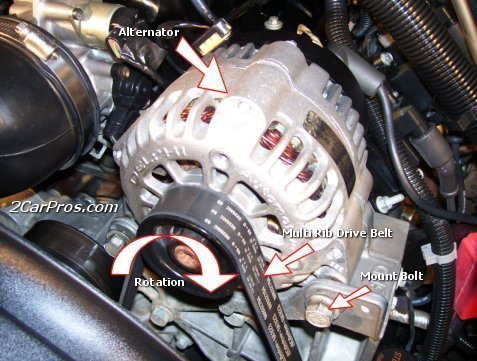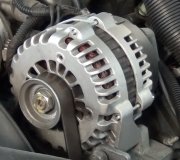I have a84 Dodge Ram 150 with a 318 engine in it. The trouble is the charging system. It's got a 78 Amp alternator that's putting out 13.5 Volts at the alternator post before it even gets to the voltage regulator. I get the same reading at the battery after the voltage regulator. The alternator guage shows a slight discharge at all times and even moreso when the lights are turned on. In a matter of a week, the battery will run down and eventually leave me on the road with no power.
The battery was replaced with a brand new one not a month ago along with two new voltage regulators (thinking it might be a faulty one) but to no avail.
If the alternator is putting out 13.5 volts at the terminal and the same at the battery, why would the alternator guage show a slight discharge. If the battery runs low, wouldn't the guage show that it's charging instead? And why does the battery (a new one) go dead over a period of a week? I'm confused unless there's a short somewhere in the wiring but if that were the case, then I'd see a spark, even a small spark if something was draining it, correct?
I'd sure appreciate some expert advice on this one because I'm at my wits end. LL
Sincerely
Ron
SPONSORED LINKS
Sunday, January 23rd, 2011 AT 4:13 AM




